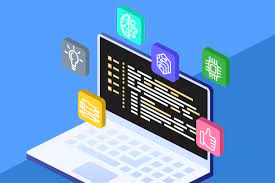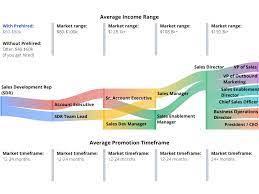Software Development: Empowering Businesses in the Digital Age
In today’s digital landscape, software development has become an integral part of businesses across various industries. From small startups to large enterprises, organizations are leveraging software solutions to streamline operations, enhance productivity, and drive growth. In this article, we will explore the importance of software development and how it empowers businesses in the digital age.
Software development refers to the process of designing, coding, testing, and maintaining computer programs that fulfill specific tasks or solve particular problems. It encompasses a wide range of activities, including requirements gathering, system design, coding languages, quality assurance, and deployment.
One of the key advantages of software development is its ability to automate complex tasks that were once performed manually. By developing custom software tailored to their unique needs, businesses can automate repetitive processes and improve efficiency. This not only saves time but also reduces human errors and frees up employees to focus on more strategic initiatives.
Moreover, software development enables businesses to gain a competitive edge by providing innovative solutions. Whether it’s developing a mobile app for seamless customer experiences or creating an e-commerce platform for online sales, custom software allows companies to differentiate themselves from competitors and meet evolving customer demands.
Another significant benefit of software development is its scalability. As businesses grow and evolve, their software needs may change as well. With custom-built solutions, organizations have the flexibility to adapt their software accordingly. This scalability ensures that businesses can continue to operate smoothly without being limited by off-the-shelf applications that may not meet their specific requirements.
Furthermore, software development plays a vital role in data management and analysis. In today’s data-driven era, organizations generate vast amounts of information that can be leveraged for strategic decision-making. Through software development practices such as data integration and analytics tools, businesses can extract valuable insights from their data and make informed decisions that drive growth.
Security is another critical aspect of modern business operations. With cyber threats becoming increasingly sophisticated, businesses must prioritize software development practices that ensure robust security measures. By developing secure software applications with built-in safeguards, organizations can protect sensitive data, mitigate risks, and maintain the trust of their customers.
Collaboration and communication are also greatly enhanced through software development. With the advent of cloud-based technologies and collaborative platforms, teams can work together seamlessly regardless of geographical locations. Software solutions like project management tools and communication platforms facilitate efficient teamwork, leading to improved productivity and project outcomes.
In conclusion, software development has become a game-changer for businesses in the digital age. From automation to innovation, scalability to data analysis, security to collaboration – custom-built software solutions empower organizations to thrive in an ever-evolving market. By investing in software development tailored to their specific needs, businesses can unlock new opportunities, streamline operations, and stay ahead of the competition in today’s digital landscape.
Commonly Asked Questions About Software Development
- What is the meaning of software development?
- What does soft developer do?
- What is the difference between soft eng and soft dev?
- What are developer soft skills?
- What comes under software development?
- What is an example of a software development?
What is the meaning of software development?
Software development refers to the process of creating, designing, coding, testing, and maintaining computer programs or applications. It involves a series of activities and methodologies aimed at developing software that meets specific requirements and solves particular problems. Software development encompasses various stages, including gathering requirements, designing the system architecture, writing code using programming languages, testing for functionality and quality assurance, and deploying the software for use.
The main goal of software development is to create reliable and efficient software solutions that fulfill the needs of users or businesses. It involves understanding the desired functionalities, planning the development process, implementing the code to bring those functionalities to life, and ensuring that the software performs as intended. Software developers utilize programming languages, frameworks, tools, and methodologies to build applications that can run on different platforms such as desktop computers, mobile devices, or web browsers.
Software development is a dynamic field that continuously evolves with advancements in technology. It requires a combination of technical skills, problem-solving abilities, creativity in designing user-friendly interfaces, and attention to detail for robustness and security. Effective software development practices involve collaboration among developers, project managers, designers, quality assurance professionals, and stakeholders to ensure successful outcomes.
Overall, software development is a crucial discipline that enables businesses and individuals to create customized solutions tailored to their specific needs. It plays a vital role in driving innovation, improving efficiency through automation, enhancing user experiences through intuitive interfaces, managing data effectively for informed decision-making processes, and enabling organizations to adapt to changing market demands in the digital age.
What does soft developer do?
A software developer, also known as a software engineer or programmer, is responsible for designing, coding, testing, and maintaining computer software applications or systems. Their role involves translating user requirements into functional code and creating software solutions that meet specific needs.
Here are some key responsibilities of a software developer:
- Analysis and Planning: Software developers work closely with clients or stakeholders to understand their requirements and objectives. They analyze user needs, evaluate existing systems or processes, and plan the development process accordingly.
- Designing: Based on the analysis and requirements, software developers design the architecture and structure of the software application or system. They create detailed technical specifications and determine the technologies, programming languages, frameworks, and databases to be used.
- Coding: Software developers write code using programming languages such as Java, Python, C++, or JavaScript to implement the designed system. They ensure that the code is efficient, readable, and follows coding standards.
- Testing: Developers conduct thorough testing of the software to identify bugs or issues before deployment. They utilize various testing techniques like unit testing, integration testing, and user acceptance testing to ensure that the software performs as expected.
- Debugging and Maintenance: After deployment, developers monitor the performance of the software application/system in real-world scenarios. They identify and resolve any bugs or issues that arise during operation. Additionally, they provide ongoing maintenance by implementing updates or improvements as needed.
- Collaboration: Software developers often work in teams alongside other professionals such as project managers, designers, quality assurance specialists, and database administrators. Effective collaboration is crucial for successful software development projects.
- Continuous Learning: Given the rapidly evolving nature of technology, software developers must stay updated with new programming languages, frameworks, tools, and industry trends. Continuous learning helps them enhance their skills and deliver cutting-edge solutions.
Overall, a software developer plays a vital role in creating functional and efficient software applications/systems that meet user requirements. Their expertise in coding, problem-solving, and collaboration contributes to the successful development and maintenance of software solutions across various industries.
What is the difference between soft eng and soft dev?
Software Engineering and Software Development are closely related fields within the broader realm of software development. While there is some overlap between the two, they have distinct focuses and areas of expertise.
Software Engineering is a discipline that encompasses the entire software development lifecycle, from requirements gathering to design, coding, testing, deployment, and maintenance. It emphasizes a systematic and structured approach to software development, with an emphasis on engineering principles and best practices. Software engineers apply engineering principles to create reliable, scalable, and maintainable software solutions.
Software Development, on the other hand, refers specifically to the process of designing, coding, testing, and maintaining computer programs or applications. It is a subset of software engineering that focuses primarily on the practical implementation aspects of creating software. Software developers are primarily concerned with writing code to build functional software applications based on established specifications.
The main difference between the two lies in their scope and level of involvement in the overall software development process. Software engineers take a broader perspective by considering various factors such as project management, system architecture design, quality assurance processes, and adherence to industry standards. They often work closely with stakeholders to understand requirements and develop comprehensive solutions that meet business needs.
Software developers typically focus more on coding and implementation aspects. They translate software design specifications into actual code using programming languages and frameworks. While they may also participate in requirements gathering or testing activities, their primary responsibility is to write efficient code that delivers the desired functionality.
In summary, while both software engineering and software development involve creating computer programs or applications, software engineering takes a more holistic approach that encompasses the entire development lifecycle. It considers factors beyond coding alone such as project management, system architecture design, quality assurance processes, and adherence to industry standards. Software development is more focused on practical implementation through writing code based on established specifications.
What are developer soft skills?
Developer soft skills refer to the non-technical abilities and qualities that complement a developer’s technical expertise. While technical skills are essential for performing coding and programming tasks, soft skills are equally important for developers to excel in their roles. These skills enable developers to effectively communicate, collaborate, problem-solve, and adapt in a professional environment. Here are some key developer soft skills:
- Communication: Strong communication skills are crucial for developers to effectively convey ideas, discuss requirements with stakeholders, and collaborate with team members. Clear and concise communication helps prevent misunderstandings and ensures that everyone is on the same page.
- Problem-solving: Developers often encounter complex challenges that require analytical thinking and problem-solving abilities. Being able to break down problems into smaller components, analyze them systematically, and devise effective solutions is a valuable skill for developers.
- Adaptability: The field of software development is constantly evolving, with new technologies and frameworks emerging regularly. Developers need to be adaptable and open to learning new concepts quickly. Adapting to changing project requirements or technologies is essential for staying relevant in the industry.
- Time management: Developers often work on multiple projects simultaneously or face tight deadlines. Effective time management skills help them prioritize tasks, allocate resources efficiently, and meet project milestones without compromising quality.
- Teamwork and collaboration: Most software development projects involve working as part of a team. Collaboration skills enable developers to work cohesively with others, share knowledge, contribute ideas, resolve conflicts constructively, and collectively achieve project goals.
- Attention to detail: In software development, even minor errors can have significant consequences. Paying attention to detail helps developers identify potential bugs or issues before they become more significant problems.
- Creativity: Software development often requires creative thinking when designing user interfaces or finding innovative solutions to complex problems. Being able to think outside the box allows developers to come up with unique approaches that enhance user experiences or optimize code efficiency.
- Empathy: Understanding the needs and perspectives of end-users, stakeholders, and team members is crucial for delivering successful software solutions. Empathy helps developers design user-friendly interfaces, communicate effectively, and build strong working relationships.
- Continuous learning: The technology landscape is constantly evolving, and developers need to stay updated with the latest trends and best practices. A willingness to engage in continuous learning demonstrates a growth mindset and ensures that developers can adapt to new technologies and tools.
- Professionalism: Demonstrating professionalism through punctuality, accountability, ethical behavior, and a positive attitude contributes to a productive work environment and fosters trust among colleagues and clients.
While technical skills are essential for developers, possessing these soft skills enhances their effectiveness as professionals. Developers who combine technical expertise with strong soft skills are better equipped to collaborate effectively with others, solve problems efficiently, adapt to changing circumstances, and deliver high-quality software solutions.
What comes under software development?
Software development encompasses a wide range of activities and processes involved in creating, designing, coding, testing, and maintaining software applications. Here are some key components that come under software development:
- Requirements Gathering: This involves understanding the needs and expectations of stakeholders to define the functionality and features required in the software.
- System Design: The process of creating a high-level architecture and detailed design for the software application, including database design, user interface design, and system integration.
- Programming/Coding: Writing the actual code using programming languages such as Java, Python, C++, or JavaScript to implement the desired functionality.
- Testing: Conducting various types of testing to ensure that the software functions correctly and meets the specified requirements. This includes unit testing, integration testing, system testing, and user acceptance testing.
- Debugging: Identifying and fixing any errors or bugs in the software code to ensure smooth operation.
- Deployment: Preparing the software for deployment by packaging it into installable files or deploying it on servers or cloud platforms.
- Maintenance: Providing ongoing support for the software application by addressing issues, implementing updates or enhancements, and ensuring its compatibility with evolving technologies.
- Documentation: Creating technical documentation that outlines how to use or modify the software application for future reference.
- Project Management: Managing resources, timelines, and budgets associated with software development projects to ensure successful completion.
- Quality Assurance (QA): Implementing quality control processes to ensure that the software meets predefined standards of performance, reliability, usability, security, etc.
- Version Control: Utilizing version control systems like Git or SVN to track changes made to source code over time and enable collaboration among developers working on the same project.
- Agile/Scrum Methodologies: Adopting iterative development approaches like Agile or Scrum to enhance collaboration and adaptability throughout the software development lifecycle.
These are just a few examples of what falls under software development. The specific activities and processes involved may vary depending on the project, development methodology, and the complexity of the software being developed.
What is an example of a software development?
One example of software development is the creation of a customer relationship management (CRM) system for a sales team. This type of software is designed to help businesses manage and track interactions with their customers, streamline sales processes, and improve overall customer satisfaction.
During the software development process, a team of developers would work closely with the sales team to understand their specific requirements and objectives. They would gather information about the desired features, functionalities, and integrations needed in the CRM system.
The development team would then proceed to design the system architecture, create a database structure to store customer data, and develop the user interface for easy navigation and data entry. They would also implement features such as contact management, lead tracking, opportunity management, reporting and analytics capabilities.
Throughout the development process, rigorous testing would be conducted to ensure that the CRM system functions as intended and meets all specified requirements. The software would also undergo security testing to protect sensitive customer information.
Once development is complete and all necessary quality assurance measures have been taken, the CRM system would be deployed on servers or cloud-based platforms for use by the sales team. Ongoing maintenance and updates may be required to address any issues or add new features based on user feedback or changing business needs.
Overall, this example showcases how software development can create tailored solutions that address specific business challenges. The CRM system enables efficient customer management, improves sales processes, and ultimately contributes to business growth by enhancing customer relationships.




